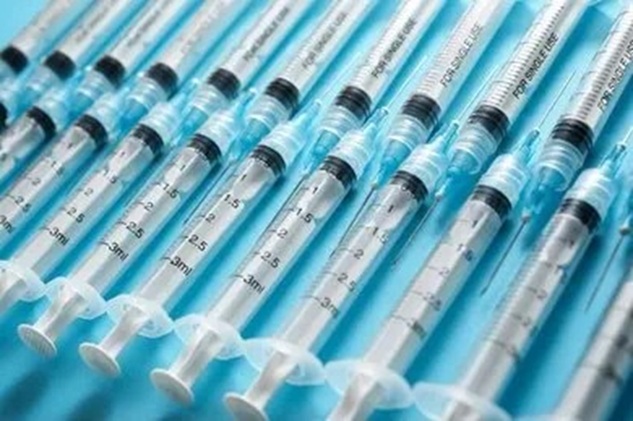In the intricate world of healthcare, where precision and hygiene can be the difference between life and death, even the smallest tools play a critical role. Among these, the plastic disposable syringe stands as one of the most widely used, yet often underappreciated, innovations in medical science.
From vaccination drives and insulin delivery to surgical procedures and laboratory work, syringes are everywhere. What has evolved in recent years is the shift from reusable glass models to the widespread adoption of sterile disposable syringe systems. This move has dramatically enhanced safety, speed, and efficiency across healthcare ecosystems.
Let’s dive into the significance, applications, and innovations surrounding plastic syringes and how they are shaping the future of medical care.
Why the Shift to Disposable Syringes Was a Game-Changer
Not too long ago, syringes were made of glass, sterilised manually, and reused, a method that, while economical, came with high risk. Improper sterilisation could lead to cross-contamination, hospital-acquired infections, and outbreaks of blood-borne diseases like HIV and hepatitis.
The introduction of the plastic disposable syringe revolutionized the industry. These syringes are designed for single use only, eliminating the risk of reuse and ensuring a higher standard of hygiene for every injection or fluid draw.
What Makes Disposable Syringes So Essential?
A sterile disposable syringe may appear simple, typically made of polypropylene with a rubber plunger and a stainless steel needle, but its role in ensuring clinical safety is monumental.
Key advantages include:
- Guaranteed Sterility: Each syringe is factory-sterilised and packed to prevent microbial contamination.
- No Cross-Usage Risk: Designed to be discarded after a single use, drastically reducing infection spread.
- Lightweight & Easy to Use: Compared to glass alternatives, plastic syringes are ergonomic and user-friendly.
- Cost-Effective at Scale: Mass production has made high-quality disposable syringes affordable and widely available.
- Compatibility with Automation: It’s ideally suited for use with auto-injectors, vaccine guns, and other medical equipment, making your tasks easier and more efficient.
Types and Sizes to Suit Every Need
Not all plastic syringes are the same. They come in various sizes, designs, and tip types to cater to specific medical or research applications.
- Common Sizes:
- 1 mL to 3 mL: Typically used for vaccinations and insulin injections.
- 5 mL to 10 mL: Appropriate for standard injections.
- 20 mL and above: Used for irrigation, flushing, or transferring fluids in labs.
- Tip Types:
- Luer Lock: Offers secure needle attachment; ideal for pressurised applications.
- Luer Slip: Facilitates rapid needle replacements, ideal for everyday applications.
- Catheter Tip: Designed for irrigation and tube feeding uses.
The variety ensures that whether in an ICU or a diagnostic lab, there’s a plastic disposable syringe fit for the task.
Applications Across Healthcare & Research
Plastic syringes are essential because of their versatility in:
- Hospitals and Clinics
Used for drug administration, anaesthesia, vaccinations, and drawing blood.
- Diagnostic Labs
Help in transferring precise quantities of liquids for chemical analysis and sampling.
- Pharmaceutical Manufacturing
Utilised for filling, testing, and transferring sterile formulations during production.
- Home Healthcare
Patients with diabetes, arthritis, or chronic illnesses often use syringes for self-administration of medicines.
- Veterinary Care
Disposable syringes ensure safe and stress-free dosing for animals.
- Research & Academia
Labs use syringes to handle chemicals and biological samples, as well as for controlled dispensing in experiments.
Importance of Sterility and Quality Control
For a sterile disposable syringe to serve its purpose effectively, rigorous manufacturing standards must be strictly followed. This includes:
- ISO & CE Certifications
- Gamma or ETO Sterilisation
- Tamper-proof Packaging
- Medical-grade Materials
Quality assurance tests include checking for plunger smoothness, leakage, and sterility, because even the slightest defect can compromise patient safety.
Addressing the Environmental Debate
A common concern surrounding plastic disposable syringe use is its contribution to biomedical waste. While syringes are single use for safety reasons, there are ongoing global efforts to improve:
- Recyclable materials in production
- Safe and eco-friendly disposal mechanisms
- Education on proper syringe disposal in hospitals and homes
Some manufacturers are even exploring bio-degradable alternatives that keep medical-grade integrity.
India’s Growing Manufacturing Strength
Thanks to improvements in automated manufacturing, material standards, and hygiene procedures, India has become a major producer and exporter of plastic syringes. With demand surging due to mass vaccination drives and the rise of chronic illnesses, Indian syringe manufacturers are making significant contributions to both domestic and global health systems.
This growth is also enabling tighter regulatory control and faster innovation in syringe design, packaging, and user safety features.
Pandemic Lessons and Mass Preparedness
COVID-19 put a massive spotlight on the importance of vaccine delivery logistics, with billions of doses administered globally. The humble sterile disposable syringe was at the centre of this herculean effort. It became clear that having a well-oiled supply chain of syringes is just as critical as having the vaccine itself.
Moving forward, global health preparedness will rely heavily on stockpiling not just medicines but also high-quality disposable medical tools, with plastic disposable syringe systems leading the list.
In the intricate machinery of healthcare, the plastic disposable syringe might be small, but its impact is enormous. It ensures sterile, safe, and efficient drug administration across hospitals, labs, and homes. The versatility of plastic syringes, combined with the guaranteed hygiene of a sterile disposable syringe, has made them a cornerstone of modern medicine. Trusted by hospitals and lab chemical suppliers India, these syringes support a wide range of critical applications. As the world moves toward more personalized and preventive healthcare, the demand for reliable, affordable, and high-quality syringes will only grow, making these tools not just essential, but revolutionary in their simplicity and significance.


